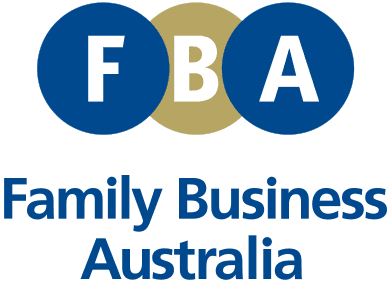When it comes to owning or managing a strata property in Australia, the terminology and regulations can vary depending on the state or territory you are in. Terms like Body Corporate, Strata Company, and Council of Owners often cause confusion, as they essentially refer to similar entities but are named differently across states. This article will explore the differences in terminology, explain how strata laws vary between Australian states, and help clarify the key terms used in strata management across the country.
What is a Body Corporate vs. Strata Company?
In Australia, both Body Corporate and Strata Company refer to the governing body responsible for managing a strata-titled property. However, the terms are used in different states:
- Body Corporate: This term is commonly used in New South Wales (NSW) and Queensland (QLD) to describe the legal entity made up of all the owners of a strata scheme. The body corporate manages the common property, enforces by-laws, and is responsible for the administration of the strata property.
- Strata Company: In Western Australia (WA), the equivalent of a body corporate is known as the Strata Company. The Strata Company is made up of all the lot owners and is responsible for the overall management of the strata scheme, including financial decisions, maintenance, and compliance with the Strata Titles Act 1985 (WA).
In both cases, the body corporate or strata company is governed by legislation specific to each state, and all owners are members of this governing body by default.
The Role of the Council of the Strata Company
In some states, the Council of the Strata Company or Executive Committee is an elected group that represents the interests of all lot owners within the strata scheme. The council is responsible for making day-to-day decisions and works alongside a professional strata manager, if one is appointed.
- Council of the Strata Company: This term is commonly used in Western Australia (WA) to describe the elected group of owners who manage the day-to-day affairs of the strata company. They are responsible for overseeing maintenance, enforcing by-laws, and managing finances. This group was previously known as the Council of Owners.
- Executive Committee: In New South Wales (NSW) and Queensland (QLD), the equivalent group is often referred to as the Executive Committee or Body Corporate Committee. They have similar responsibilities to the Council of the Strata Company in WA.
How Strata Legislation Differs Across States
Each Australian state and territory has its own legislation that governs how strata properties are managed. While the core principles of strata management remain the same—managing common property, setting levies, and enforcing by-laws—there are differences in how these laws are applied and what they are called.
Here’s a breakdown of the key differences in strata legislation and terminology across states:
- New South Wales (NSW)
- Legislation: Strata Schemes Management Act 2015
- Governing Body: Body Corporate or Owners Corporation
- Elected Group: Executive Committee
- Common Terms: Body Corporate, By-Laws, Levies
- Queensland (QLD)
- Legislation: Body Corporate and Community Management Act 1997
- Governing Body: Body Corporate
- Elected Group: Committee
- Common Terms: Body Corporate, By-Laws, Levies
- Western Australia (WA)o
- Legislation: Strata Titles Act 1985 (WA) (Strata Titles Amendment Act 2018)
- Governing Body: Strata Company
- Elected Group: Council of The Strata Company
- Common Terms: Strata Company, By-Laws, Levies
- Victoria (VIC)
- Legislation: Owners Corporations Act 2006
- Governing Body: Owners Corporation
- Elected Group: Committee
- Common Terms: Owners Corporation, Rules, Fees
- South Australia (SA)
- Legislation: Strata Titles Act 1988
- Governing Body: Strata Corporation
- Elected Group: Management Committee
- Common Terms: Strata Corporation, By-Laws, Levies
- Tasmania (TAS)
- Legislation: Strata Titles Act 1998
- Governing Body: Body Corporate
- Elected Group: Committee of Management
- Common Terms: Body Corporate, By-Laws, Levies
- Australian Capital Territory (ACT)
- Legislation: Unit Titles (Management) Act 2011
- Governing Body: Owners Corporation
- Elected Group: Executive Committee
- Common Terms: Owners Corporation, Rules, Levies
- Northern Territory (NT)
- Legislation: Unit Titles Act 1975
- Governing Body: Body Corporate
- Elected Group: Management Committee
- Common Terms: Body Corporate, By-Laws, Levies
Understanding the Different Terms Across Australian States
- Levies vs. Fees
While most states refer to the funds collected from owners to manage the strata scheme as levies, Victoria and the ACT refer to them as fees. - By-laws vs. Rules
In most states, the regulations that govern the behavior of owners and residents within a strata scheme are called by-laws. However, in Victoria and the ACT, these regulations are called rules. - Owners Corporation
The term Owners Corporation is used in Victoria and the ACT in place of Body Corporate or Strata Company. This reflects the same role as a body corporate but is unique to these states.
Why Does It Matter?
Understanding these terms is important for anyone buying or managing strata-titled property in Australia, as each state’s legislation governs the rights and responsibilities of owners, tenants, and managers. Whether you’re living in Western Australia or New South Wales, the essence of strata management remains the same, but being aware of the different terms and laws will help ensure you are compliant and informed.
Need Help with Your Strata Management?
If you’re frustrated with the way your Strata Company is being managed or if your complex is struggling without an active Body Corporate, we can help. Get in touch with our team of strata specialists to discuss how we can support the management of your property and ensure it is well-maintained for years to come.
For more information, call us at 08 9362 1166 or email us at info@esmstrata.com.au. You can also visit our website for further resources.









